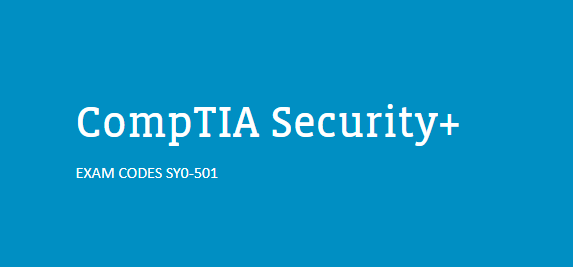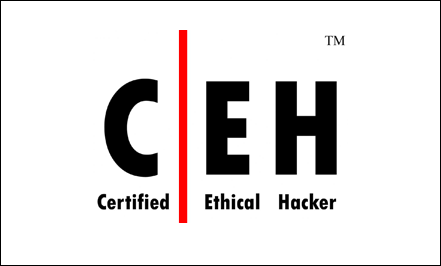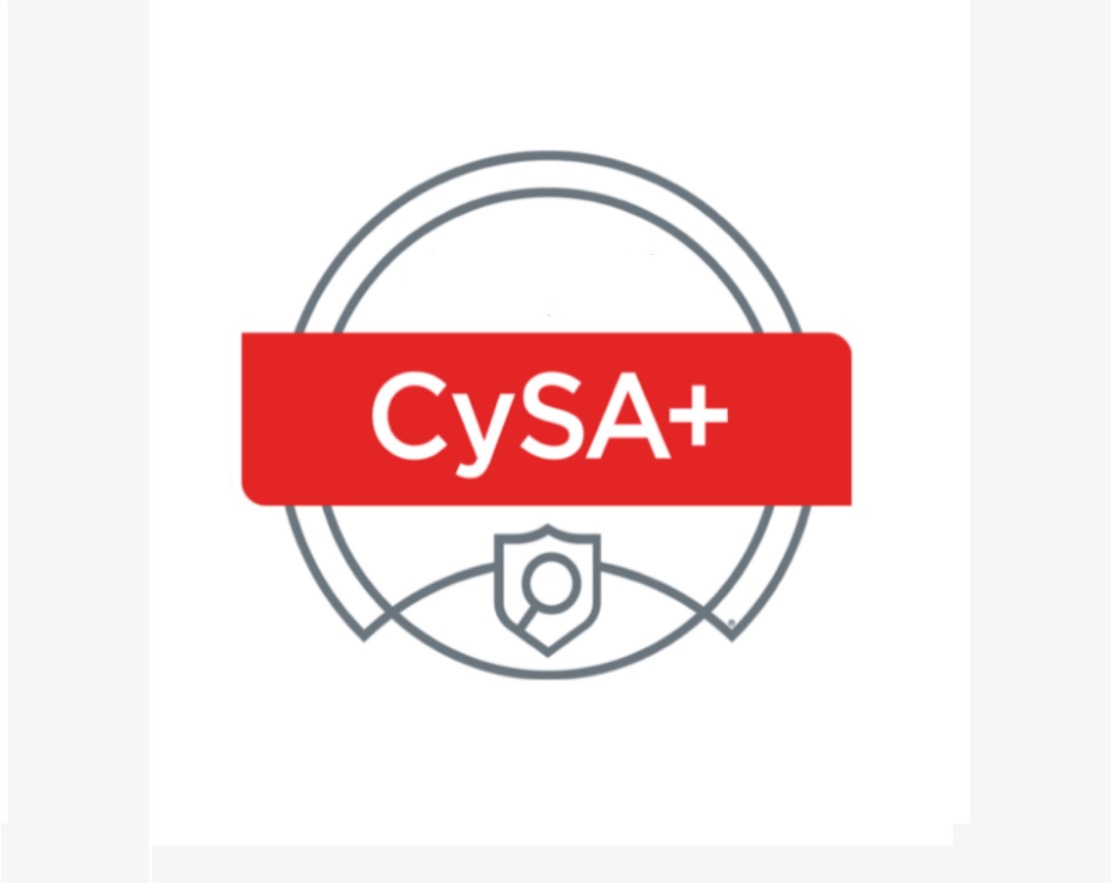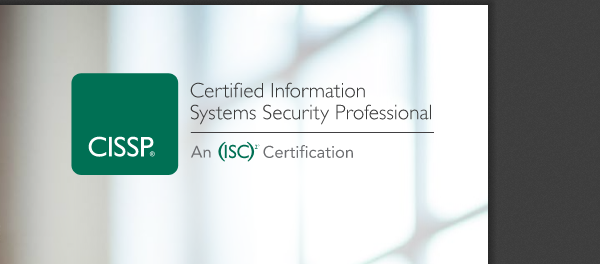You’re wondering how much cybersecurity certifications cost and staring at your computer screen with your finger hovering over the “Purchase” button. $749 for the CISSP exam. Throw in another $2,000 something for the bootcamp and study materials. A grand total of $3,000. “That’s a lot of money,” You think to yourself. “What if I fail? What if it doesn’t pay off?”
Then you look at the other browser tab you recently opened up; the one that gave you a reality check. Your current salary as a network administrator: $62,000 per year. Then, the “Security Architect – CISSP Required – $128,000-$163,000.”
“What if it does?” You convince yourself. You clicked “Purchase.” and there went your $3,000!
Eighteen months later, you laugh your way to the bank, thinking: “Best $3,000 I ever spent. New job, $142,000 salary. The certification paid for itself in three weeks.”
First Things First, Why Get Certified?
Would you call an HVAC plumber who learned through hit and trial trying to fix your furnace, figuring out what happened at a cost of $50, or someone whose certified and knows exactly what to do for $100?
Paying that extra $50 provides you with the extra peace of mind that doesn’t come with a novice plumber. The same goes for cybersecurity. Among a pool of applicants, you dramatically improve your chances of getting hired at the right salary once employers see certifications next to your name.
What Cybersecurity Certifications Cost in 2025?
Let’s not sugarcoat this; cybersecurity certifications aren’t cheap. The average certification cost in 2025 ranges widely depending on the credential and level of expertise. Entry-level certifications such as CompTIA Security+ generally cost between $370 and $450, while advanced certifications like CISSP may cost upwards of $749 or more.
Knowing which one to appear for and when is what differentiates between you and others who seem to be only juggling with their careers. Having the right cybersecurity certifications can definitely boost your career, providing you with the much-needed financial freedom, stability and a life that you actually want to enjoy.
In this detailed guide, I am going to lay out with you the entry-level, intermediate and advanced credentials, their costs and the time required for preparation, with expected benefits.
Entry-Level Certifications (The Foundation)
CompTIA Security+
- Exam fee: $425
- Study materials: $50-$200
- Optional training course: $500-$1,500
- Cybersecurity Certification Cost Total: $942-$2,092
This is your baseline, your foot-in-the-door certification. It’s what gets HR to actually read your resume instead of tossing it in the digital trash bin.
Mid-Level Certifications (The Career Accelerators)
Certified Ethical Hacker (CEH)
- Exam fee: $1,199 (Pearson Vue) or $950 (EC-Council) plus a $100 administration fee
- Required partnered training: $850-$3,499
- Cybersecurity Certification Cost Total: $1,900-$4,698
CompTIA CySA+ (Cybersecurity Analyst)
- Exam fee: $392
- Training materials: $300-$1,000
- Cybersecurity Certification Cost Total: $692-$1,392
Advanced Certifications (The Big Leagues)
CISSP (Certified Information Systems Security Professional)
- The CISSP certification’s total cost ranges from $900 for self-study to over $4,000 for extensive bootcamps in 2025. Core expenses include the $749 exam fee, training materials ($60-995), and a yearly $135 maintenance fee
- Cybersecurity Certification Cost Total first year: $900-$4,880
OSCP (Offensive Security Certified Professional)
- Exam costs $1,499, which includes 90 days of lab access. But most candidates find themselves extending labs or retaking the exam, pushing the final spend above $2,000
- Cybersecurity Certification Cost Total: $1,500-$3,000+
The Hidden Costs Nobody Talks About
Beyond the obvious fees, there are costs most people don’t factor in:
Time Investment
- CISSP certification requires 50 to 70 hours of preparation time on average
- At an average hourly rate, that’s another $1,000-$2,000 in opportunity cost
Renewal Fees
- Most certifications aren’t one-and-done
- Annual maintenance: $85-$135 per year
- Continuing education credits (CPEs/CPUs)
- Re-certification exams every 3-5 years for some credentials
Failed Attempts
- Not everyone passes first try
- Only about 20% of people get the requisite passing score of 70% on CISSP first attempt
- Retake fees: Usually the full exam price again
The Real Numbers: A Three-Year Investment
Here’s how your 3-year journey will look like:
Year 1:
- Security+ exam and materials: $600
- Security+ training course: $1,200
- Cybersecurity Certification Cost Total: $1,800
Year 2:
- CISSP exam: $749
- CISSP bootcamp: $2,500
- Study materials: $300
- Failed first attempt, retake: $749
- Cybersecurity Certification Cost Total: $4,298
Year 3:
- CISSP annual maintenance: $135
- CEH exam and training: $2,000
- Cybersecurity Certification Cost Total: $2,135
Grand Total Over 3 Years: $8,233
That’s a lot of money. But here’s where the story gets interesting.
The Payoff: Why This “Expensive” Investment Is Actually Worth It?
Your current salary as of now? $62,000. Your new salary? $142,000.
That’s an $80,000 annual increase. Your investment of $8,233 has already paid for itself in approximately 37 days of work.
But let’s dig deeper into what the actual data shows about certification ROI.
The Salary Bump Is Real (And It’s Spectacular)
Certified professionals earn higher wages, with the median salary for information security analysts at $124,910, and the top 10% earning more than $186,420.
But let’s get more specific:
Security+ Holders: The average U.S. salary for Security+ holders is $99,446, compared to roughly $60,000-$70,000 for non-certified help desk or entry-level IT positions. That’s a $30,000-$40,000 increase from a $392 exam.
CISSP Holders: CISSP-certified professionals command an average salary of $120,552 in the US, though this can climb much higher.
CEH Holders: The average CEH salary for 2024 is around $134,217.
Let me put this in perspective with a real-world scenario:
Scenario: the SOC Analyst
- Current salary (no certs): $65,000
- Gets Security+: $80,000 (23% increase)
- Adds CySA+ two years later: $95,000 (19% increase)
- Gets CISSP after five years total experience: $130,000 (37% increase)
Total salary growth over 5 years: $65,000 Total certification investment: ~$5,000 ROI: 1,300%
The Career Door Effect: Getting Past the Gatekeepers
Here’s something the salary numbers don’t capture: certifications don’t just increase your pay in your current role—they unlock entirely new roles you couldn’t even apply for before. The CISSP is the most requested cybersecurity certification in job openings. Many positions literally won’t consider candidates without it.
Without CISSP: “Thanks for applying, but we’re looking for someone more qualified.”
With CISSP: “When can you start?”
With over 500,000 open cybersecurity jobs in the US according to CyberSeek, certified pros are in crazy demand.
Without Certification: Employer: “We can offer you $75,000.” You: “I was hoping for $85,000.” Employer: “Sorry, that’s above our range for someone at your level.” You: takes the $75,000
With Certification: Employer: “We can offer you $75,000.” You: “I have my CISSP and three years of security experience. The market rate for this position with my credentials is $95,000-$110,000. I’m looking for $100,000.” Employer: awkward pause “Let me talk to my manager.” comes back Employer: “We can do $95,000 with a performance review in six months.”
The Hidden Benefits: Beyond Just Money
While we’re focused on ROI and dollars, certifications provide benefits that don’t show up in a paycheck:
Professional Credibility
When you speak in a meeting and mention you’re CISSP-certified, people listen differently. It’s the difference between “Dave from IT” and “Dave, the certified security professional.”
Network Access
Certification programs connect you with communities of other certified professionals. These networks lead to:
- Job opportunities that never get posted publicly
- Mentorship from senior professionals
- Collaboration opportunities
- Inside information about industry trends
Confidence
There’s something powerful about passing a difficult exam. You walk into interviews differently. You speak with more authority. You take on challenges you would have avoided before.
Job Security
According to the Bureau of Labor Statistics, security analyst jobs are growing 33% yearly, which the Bureau labels “much faster than average” Privacyengine.
In a field growing that fast, with a massive talent shortage, certified professionals have essentially bulletproof job security. Companies can’t afford to lose certified talent.
Geographic Flexibility
Certifications are recognized globally. Your CISSP in Texas is valued in California, New York, London, Singapore, or Dubai. Want to relocate? Your certification travels with you.
The Comparison: Certification vs. College Degree
Let’s compare certifications to the traditional path: a college degree.
Four-Year Cybersecurity Degree:
- Tuition: $40,000-$100,000
- Time investment: 4 years
- Opportunity cost (lost wages): $120,000-$160,000
- Total cost: $160,000-$260,000
- Starting salary: $65,000-$75,000
Certification Path (Self-Study):
- Security+, CySA+, CISSP over 2 years: $5,000-$7,000
- Time investment: 2 years (while working)
- Opportunity cost: $0 (you’re earning while learning)
- Total cost: $5,000-$7,000
- Ending salary: $100,000-$130,000
The certification path costs 97% less and gets you to a higher salary faster. Am I saying skip college? No. But if you’re already working in IT and want to break into security, certifications are the fastest, cheapest, and most effective path.
The Timeline Reality: When Does the Money Actually Show Up?
One question I get constantly: “Okay, but when will I actually see the money?”
Immediate Impact (0-3 Months)
New job seekers: If you’re currently job hunting, certifications work immediately. You apply with your shiny new cert, and suddenly you’re getting interviews for positions $15,000-$30,000 higher than before.
David applied for new positions within two weeks of passing CISSP. He had three interviews within a month. Job offer in six weeks.
Short-term Impact (3-12 Months)
Current employees: If you’re employed, the timeline is slightly longer but still fast:
- Pass certification (Month 1)
- Update resume and LinkedIn (Month 1)
- Request performance review meeting (Month 2)
- Make case for raise/promotion (Month 3)
- Start applying externally if internal raise doesn’t happen (Month 4)
- Accept new offer (Month 6-8)
Most people see the financial impact within 6-12 months of certification.
Long-term Compounding (1-5 Years)
Here’s where it gets really interesting. Certifications don’t just give you one raise—they accelerate your entire career trajectory.
Your Five-Year Journey:
- Year 1: Gets Security+, moves from help desk ($55K) to junior security analyst ($75K)
- Year 2: Gets CySA+, promoted to security analyst ($90K)
- Year 3: Gets CEH, moves to penetration testing role ($110K)
- Year 4: Gets CISSP, promoted to senior penetration tester ($130K)
- Year 5: Transitions to security architect ($150K)
The Failure Factor: What If You Don’t Pass?
Let’s address the elephant in the room: not everyone passes on the first try. Only about 20% of people get the requisite passing score of 70% on the CISSP exam on their first attempt.
The Real Cost of Failure
Failed CISSP attempt:
- Lost exam fee: $749
- Lost time: 70 hours of study
- Emotional cost: Feeling like a failure
- Delayed career progress: 3-6 months
But here’s the thing: Even if you fail once, the ROI is still overwhelmingly positive.
Let’s say you fail CISSP twice before passing:
- Attempt 1: $749
- Attempt 2: $749
- Attempt 3: $749
- Training and materials: $3,000
- Total: $5,247
Salary increase from finally passing: $20,000-$40,000 annually
Still pays for itself in 2-4 months. Still a massive win.
Minimizing Failure Risk
The good news? You can dramatically improve your odds:
Boot camps with high pass rates:
- Those who go through the Infosec Security+ Boot Camp average a 93% pass rate.
- Quality training isn’t just about learning—it’s about not wasting money on retakes
Peace of Mind Insurance:
- You can purchase Peace of Mind Protection for an extra $199 Enzuzo on CISSP, which lets you retake if you fail
- $199 insurance policy against a $749 loss? That’s smart budgeting.
The Maintenance Cost: The Part Everyone Forgets
Certifications aren’t one-and-done. They require ongoing maintenance:
Annual Maintenance Fees:
- Security+: $50 every 3 years ($17/year)
- CISSP: $135 annually
- CEH: $80 annually
Continuing Education:
- Most certs require CPE/CPU credits
- This means conferences, training, or documented work activities
- Time investment: 20-40 hours per year
- Cost: $0-$500/year (if not covered by employer)
Three-Year Total:
- Security+: $50
- CISSP: $405
- CEH: $240
These costs are real, but in context? Your annual salary increase from these certs is $15,000-$40,000. Spending $135/year to maintain a $20,000+ salary bump is a no-brainer. According to CyberSeek data, 87% of organizations now prefer candidates with role-specific certifications rather than generalists.
Without certifications, you’re fighting with one hand tied behind your back. You might be talented, experienced, and knowledgeable—but you’re invisible to most employers.
The 2025 Landscape: Why Now Is The Perfect Time
The cybersecurity job market in 2025 is unlike anything we’ve seen before:
The Shortage: Approximately 3.5 million unfilled cybersecurity positions expected globally by 2025.
The Growth: Security analyst jobs are growing 33% yearly.
The Salary Trend: Median cybersecurity salaries have increased 15-25% in the past three years and show no signs of slowing.
The Bottom Line: There has never been a better time to invest in cybersecurity certifications. Demand is at an all-time high. Salaries are climbing. And organizations are desperate for certified talent.
The Hidden Multiplier: Certifications That Lead to More Certifications
Here’s something interesting that doesn’t show up in ROI calculations: certifications build on each other, and each one makes the next easier.
The Knowledge Transfer Effect
When David studied for Security+, he learned foundational concepts. When he tackled CISSP 18 months later, 40% of the material was review. His study time was cut nearly in half because he’d already built the foundation.
Real impact:
- First cert: 100 hours of study
- Second cert: 60 hours of study (40% overlap)
- Third cert: 50 hours of study (more overlap)
You’re not starting from zero each time. You’re building on previous investments.
The Credential Stack
Some certifications specifically build on others:
CompTIA Pathway: Security+ → CySA+ → CASP+ (Cloud+, PenTest+ as alternatives)
Each exam assumes knowledge from the previous level. Study time decreases. Pass rates increase.
ISC² Pathway: Security+ equivalent experience → CISSP → CCSP or ISSAP/ISSEP/ISSMP
Once you pass CISSP, adding CCSP requires only the delta knowledge about cloud-specific security. You’re not re-learning the entire CISSP body of knowledge.
The Employer Funding Cycle
Here’s how smart people do it:
- Self-fund Security+ ($1,500)
- Get hired at new company with cert reimbursement
- Company funds next cert ($3,000)
- Salary increases, company funds another cert
- Repeat
After your initial investment, you’re often working for companies that will fund subsequent certifications. The ROI multiplies because your out-of-pocket costs decrease.
The Stories: Real People, Real Returns
Let me share a few more real examples (names changed, numbers verified):
Jennifer: The Career Switcher
- Background: 8 years as a teacher, $48,000 salary
- Investment: Security+ boot camp and exam ($1,800)
- Timeline: 3 months study, passed first try
- Outcome: Junior SOC analyst position, $72,000
- Year one return: $24,000 salary increase
- ROI: 1,333%
Jennifer’s story is powerful because she had ZERO IT background. She learned from scratch, got one certification, and nearly doubled her salary in six months.
Three years later, she’s a senior SOC analyst with CySA+ and CISSP, making $115,000. Total certification investment: $7,000. Total salary increase from teaching: $67,000 annually.
Marcus: The IT Support Tech
- Background: 4 years help desk, $58,000 salary
- Investment: Security+ ($600 self-study) + CEH ($3,200)
- Timeline: 8 months total
- Outcome: Junior penetration tester, $95,000
- Year one return: $37,000 salary increase
- ROI: 974%
Marcus is interesting because he spent more on CEH than CISSP would have cost. But CEH got him into offensive security faster, which was his goal. Two years later, he added OSCP ($2,000) and now makes $135,000 as a senior penetration tester.
Angela: The Stalled Manager
- Background: 12 years in IT, operations manager, $95,000 salary, hitting ceiling
- Investment: CISSP ($4,500 with boot camp)
- Timeline: 4 months study, failed first attempt, passed second (6 months total)
- Outcome: Security architect role at new company, $145,000
- Year one return: $50,000 salary increase
- ROI: 1,111%
Angela’s story shows that even mid-career professionals benefit enormously. She’d been stuck at $95,000 for three years. CISSP unstuck her career trajectory. She’s now on track to security director ($180,000+) within two years.
The Investment Mindset: Stop Thinking Cost, Start Thinking Return
Here’s the fundamental mindset shift: certifications aren’t expenses—they’re investments.
When you spend $4,000 on a vacation, it’s an expense. You enjoy it, then it’s gone.
When you spend $4,000 on CISSP, it’s an investment. It pays dividends forever:
- Year 1: $25,000 return
- Year 2: $25,000 return
- Year 3: $25,000 return
- And on, and on, and on…
That’s a $4,000 investment with a $25,000 annual dividend. Show me a stock that does that.
Ready to Make the Best Investment of Your Life?
Our comprehensive cybersecurity training and certification programs are designed to maximize your ROI and minimize your risk.
Why Train With Me?
✓ Industry-leading pass rates – 93% pass rate for Security+ boot camp because we don’t just teach—we prepare you to succeed
✓ All-inclusive pricing – No hidden fees, no surprise costs. You know exactly what you’re investing upfront
✓ Flexible payment plans – We offer payment plans that make certifications accessible
✓ Money-back guarantee – Pass your certification or we’ll refund your course fee. We’re that confident in our training
✓ Career services included – Resume optimization, interview prep, and job placement assistance included with every program
✓ Multiple certification paths – Security+, CySA+, CEH, CISSP, OSCP, and more. We help you choose the right path for your goals
What Are You Waiting For?
What if this investment changes your life? What if 12 months from now, you’re making $40,000 more per year? What if five years from now, you’re a security architect making $150,000? What if this is the decision that breaks you out of the career plateau you’ve been stuck on?
The only way to find out is to start.
Enroll in our cybersecurity certification programs now and make the investment that pays for itself in weeks, not years.
Your future self—the one making six figures, with job security, career options, and professional pride—is waiting for you to make this decision.
Make it today






